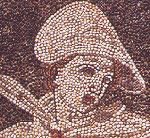"A Farewell to Arms" (Part II)
In terms of volition, there are at least three kinds of heroes in literature: Accidental, Bumbling, and Goal-directed. Lieutenant Henry is an example of an Accidental Hero. He pulls off feats only in the face of grave or sudden adversity. He rises to meet life’s challenges and so deserves credit for pulling off a difficult stunt now and then.
Consider two men flying a Cessna aircraft, a pilot and his non-pilot friend. When the pilot suddenly dies of a heart attack, what will the non-pilot do? If he goes berserk or makes bad decisions, he will likely crash the plane and die. If he shows ingenuity, he may extend his life or even survive against all odds; this is the Accidental Hero, and I suspect that many people, to the extent of their physical and mental capabilities, would rise up and become such a hero if their highest values were threatened. Henry is such a hero; he deals with adversity only when it comes his way, though not always successfully.
The Bumbling Hero, on the other hand, isn’t a hero at all. If he lands the plane, it’s because he mystically manages to push all the right buttons and pulls all the right knobs while singing “Tweetle-dee” and ejaculating about his “awfully bad luck,” and while not displaying a scintilla of good sense. How many billions of times can writers churn out these obnoxious rubber ducks? Ask Hollywood.
There's a third and better kind: The Goal-directed Hero. He is the one who bends circumstances to his will. In literature, he is the originator both of conflict with his enemies and of resolution by his own action. By “conflict with his enemies” I don’t mean that he initiates force against others. I mean that in the pursuit of his goals, he will necessarily encounter resistance (in the context of literature) and will overcome them (in the context of my literature), this in contrast to the Accidental Hero whose antagonists, by their primary actions, cause him to rise up and act in self defense. My protagonist—the Goal-directed Hero—will always take (positive) action first.
Labels: books, reviews, romanticism


<< Home